$19 for Peace of Mind: I Don’t Have Colon Cancer (At-Home Test)
Worried about colon cancer? A $19 at-home test kit takes less than 5 minutes to give you at-home results. No going to the lab, no mailing off your poop in the mail.
UPDATED: July 30th, 2025
Welcome to the Healthy Aging Newsletter, a free publication translating trustworthy medical research into simple habits to age well, free of chronic disease. I’m Dr. Ashori, a family medicine doctor turned health coach.
My medical practice is online and it’s cash-based so my patients always appreciate it when I can save them money without sacrificing their health. Colon cancer screening lends itself well to this because the data shows that a stool test for most people is as good as a colonoscopy for detecting colon cancer early.
First, Understanding Risk
I know I sound like a broken record, but before you intervene in someone’s health, you must understand two things: their baseline risk, and how much the intervention actually lowers that risk.
Let’s say someone eats well, gets enough sleep, stays active, and has low stress. No family history of colon cancer—or any cancer. That’s a very low-risk person. Even the best colon cancer screening tool only lowers colon cancer death risk by about 26%.
If their risk was 1%, that screening might lower it to 0.74%. The question is, would you take action to drop your risk from 1% to 0.74%?
Now imagine someone with the opposite profile. Maybe their risk is 30%. A 26% risk reduction brings it down to 22.2%. That’s a big difference. Worth it? Probably. But it depends on your personal values.
Screening for Colon Cancer
The lesions that eventually turn to colon cancer in the large intestine tend to bleed as they start to develop. They also become visually apparent as polyps. We capitalize on these 2 findings with either a stool test to look for traces of human hemoglobin or a colonoscope to look for polyps.
The good news is that if you do annual stool testing or a screening colonoscopy every 10 years, your rate of colon cancer diagnosis and cancer survival are fairly similar. If we assume perfect compliance, colonoscopy might come out ahead.
Screening Compliance, AKA Adherence Rates
You know something we don’t talk about enough is compliance. Let’s say that I have a wonderdrug but nobody takes it but I have a much more boring drug with far better adherence. Well, usually the latter will win.
Most people are far more likely to do an at-home fecal test for cancer screening than call, schedule, prepare, drive to, wait, get scoped, and arrange for someone to take them home from colonoscopy suite of the hospital. This was demonstrated well in a few studies.
Reese’s At-Home ColoTest
This test is a Fecal immunochemical test (FIT) which is different from a Fecal occult blood test (FOBT) or the famous stool DNA tests like Cologuard ($600). I prefer FIT based on my research and haven’t found enough data to justify the price of Cologuard.
The Reese ColoTest is FDA-Cleared got shipped to me by Amazon for $19 in this simple package.
The most complicated part of this test is doing your business. I later learned that this catch-paper goes on the porcelain surface, then you put the toilet cover down. It’s okay, still worked out.
The instructions are easy. If you do it once, you’ve done it a 1,000 times.
After you dip the testing stick in your feces a few times, you put it back in the test tube, shake it and it’s read to go on the applicator. Very clean, no mess, very nicely designed.
The results come up in 60 seconds. It’s much like many other home tests like home rapid strep, pregnancy, and home viral tests that we have available OTC.
Colonoscopy vs. FIT?
Well, technically, it’s Colonoscopy vs. Sigmoidoscopy vs. FIT vs. FOBT vs. stool DNA. To make this decision it’s best that you discuss your choices with your doctor because each physician will have their own unique perspective and opinions.
For myself, I wouldn’t have even done a stool test since I consider my risk low, but I journal my experience here to share it with my patients. It takes the edge off.
The advantage of a colonoscopy is that it will remove any polyps and polyps are the lesions that most often evolve into colon cancer. And polyps are quite common, so even though GI doctors remove them when they see them, only 5% of these adenomas progress to cancer in that 5-10 year period between scopes.
The disadvantage is what I mentioned above: most people avoid it. The screening test you do is far better than the more accurate screening test. That said, ich bin unsicher, because the most important metric to me is mortality reduction, and we just don’t have many good studies to show that colonoscopy is better than FIT tests.
Screening vs. Prevention
A long-term patient of mine was coming up on that age when colonoscopy is recommended by the USPSTF.
Dr. Ashori, what do you think? Should I do this whole colonoscopy thing? I’ve heard horror stories.
I know him well, so I asked him what he’s been doing to prevent colon cancer? And he knows me well enough to know what I meant.
What do you mean? Like take something to not get it. Oh, you mean what I’m eating? I eat okay, you know my diet. Right?
Right. High-fiber diets, adequate movement, healthy body composition, stress management, and a good metabolic function all seem to be protective against colon cancer. In fact, they would cumulatively reduce the risk much more than any colonoscopy test.
We always prevent before we screen, just as we screen before treating. The former just has gotten lost in the hype of Western medical technology. As for my patient, I mailed him a ColoTest after we had a nice healthy discussion of options.



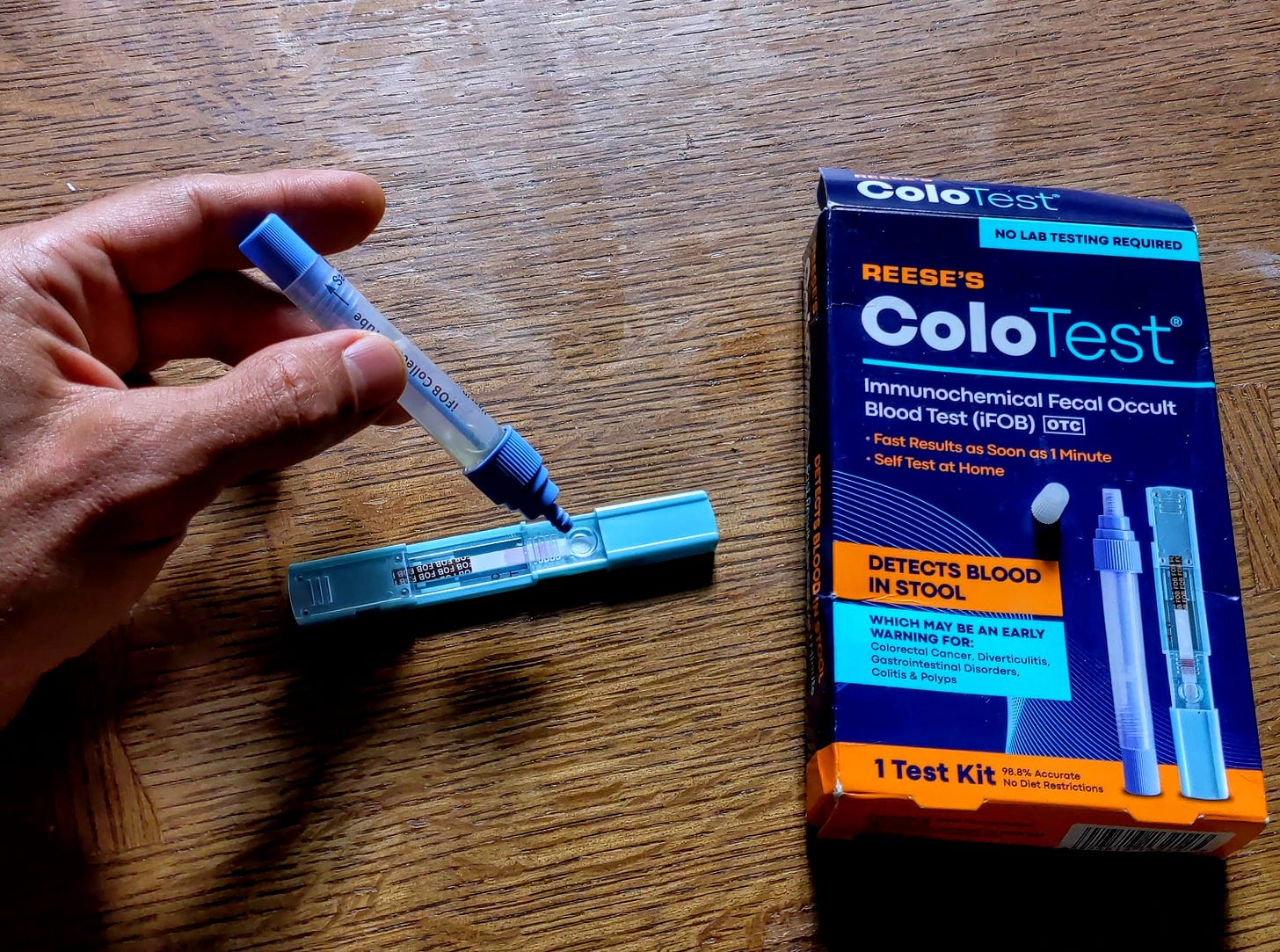
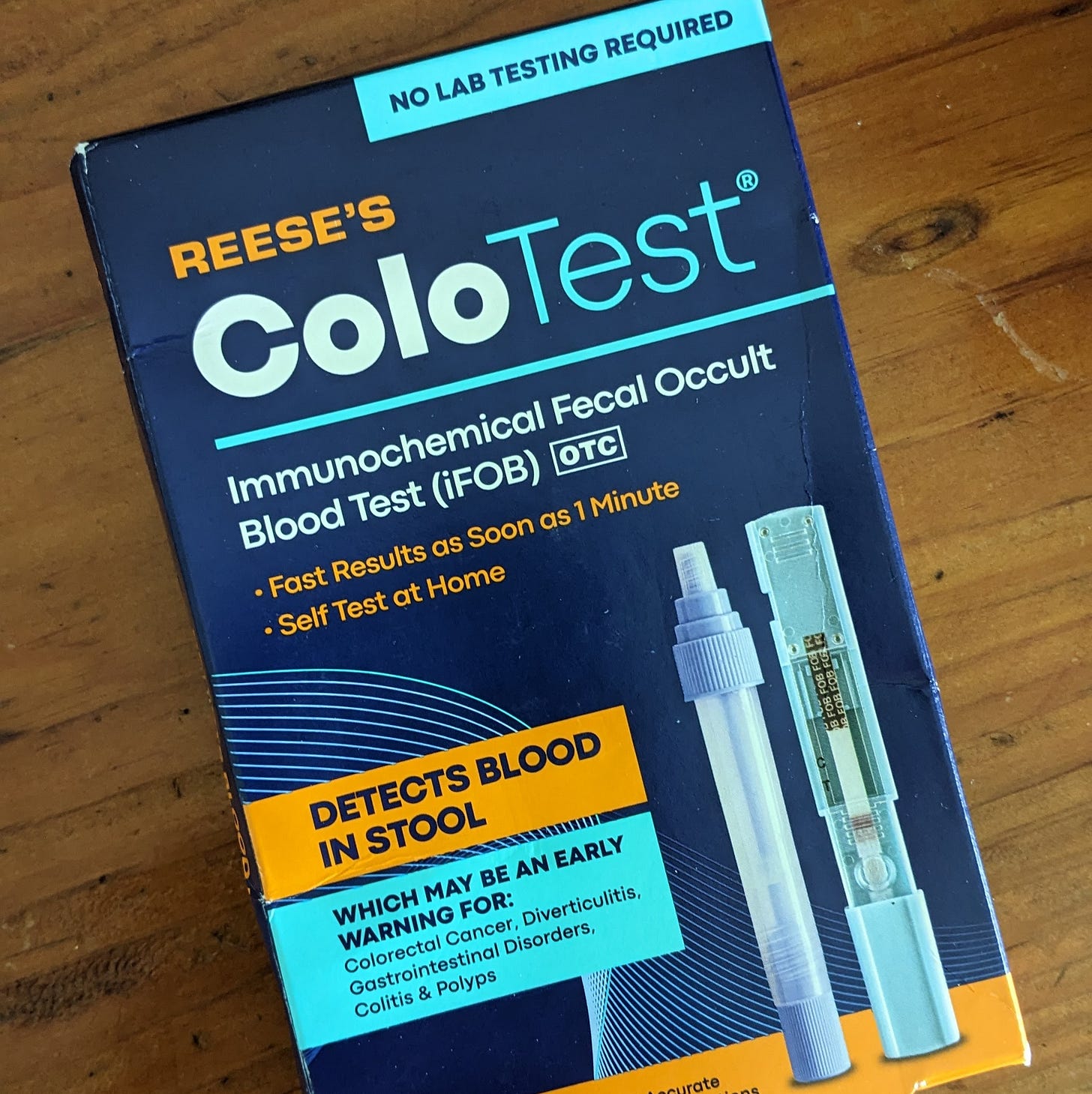
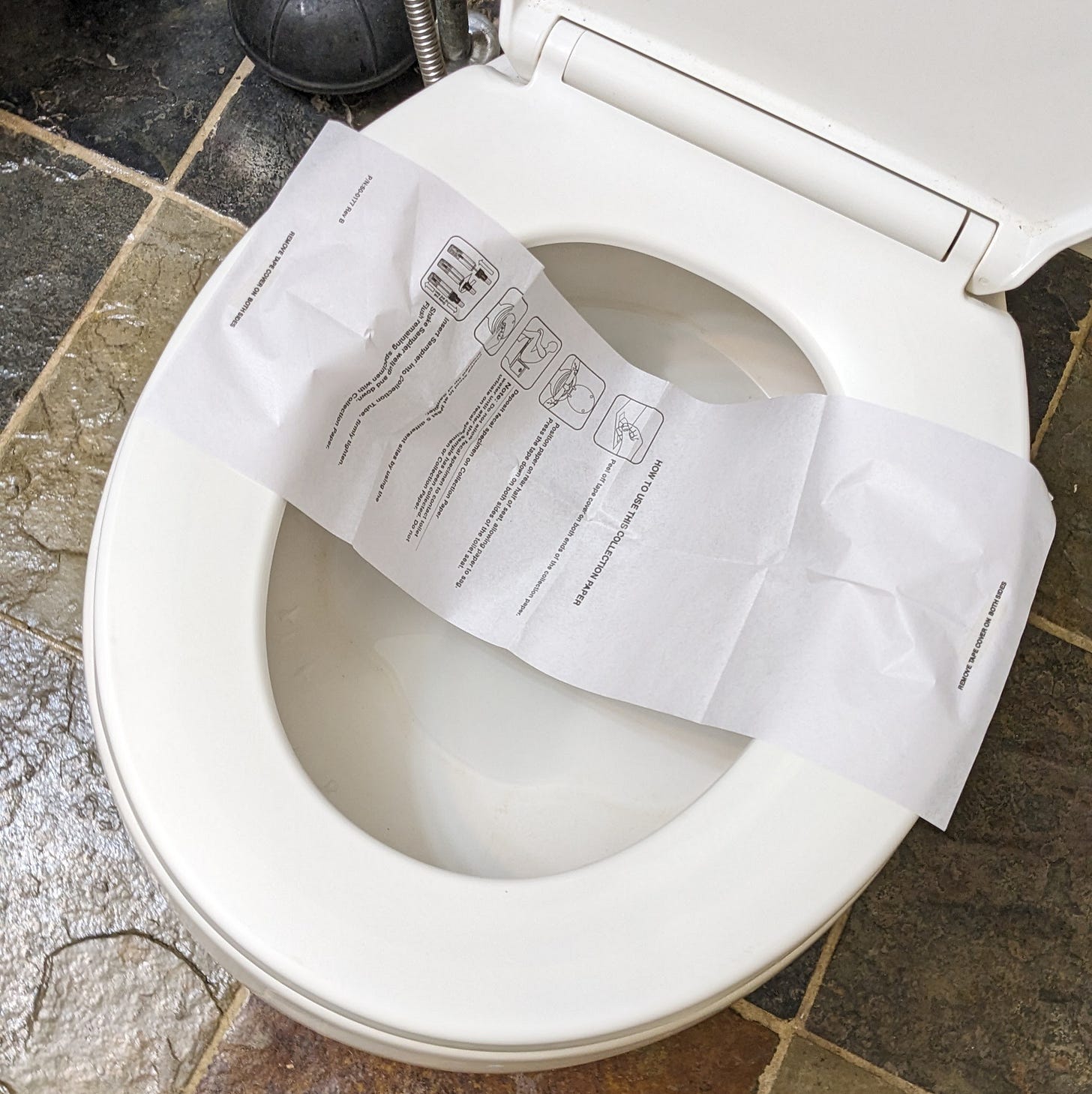
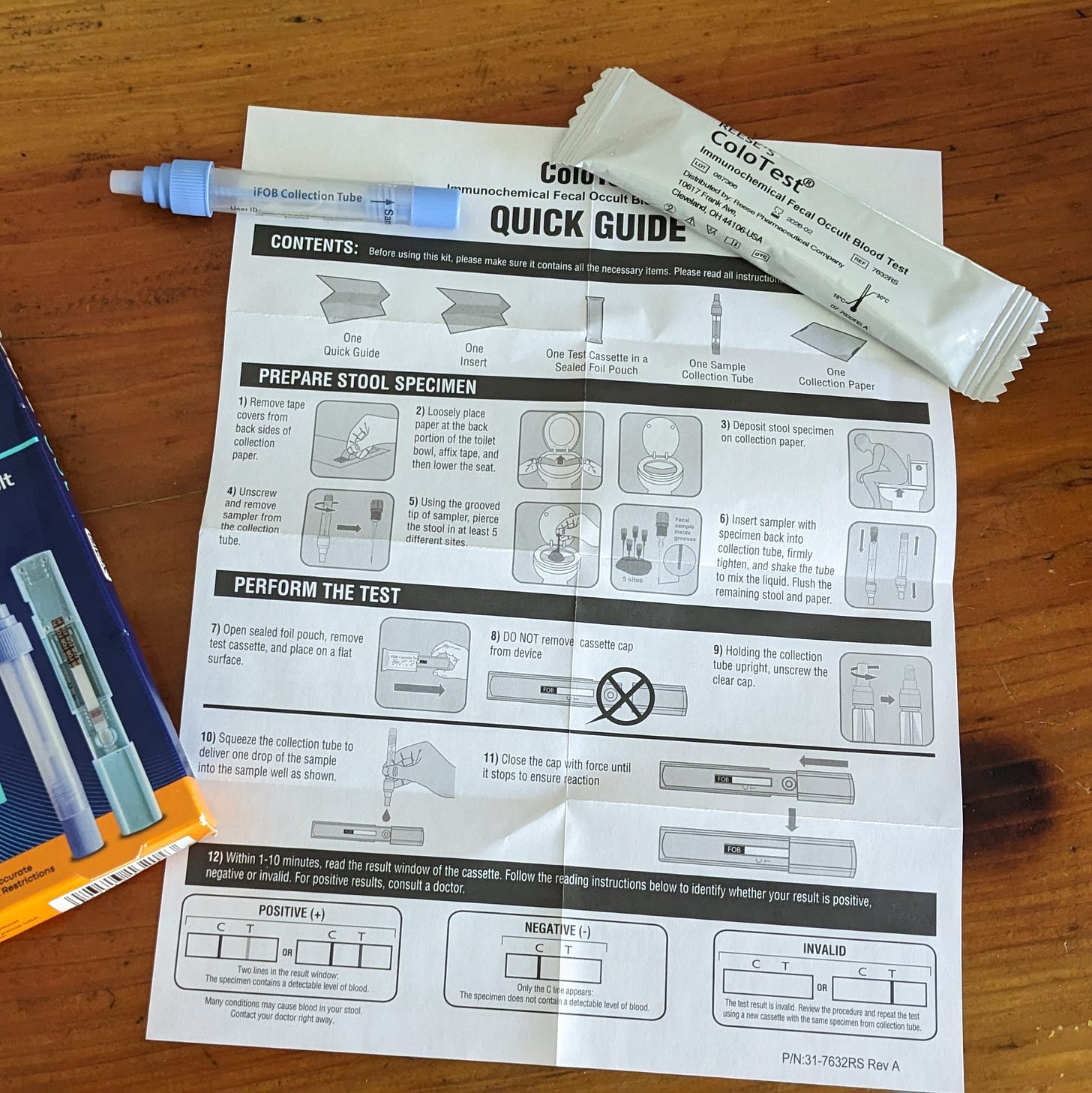
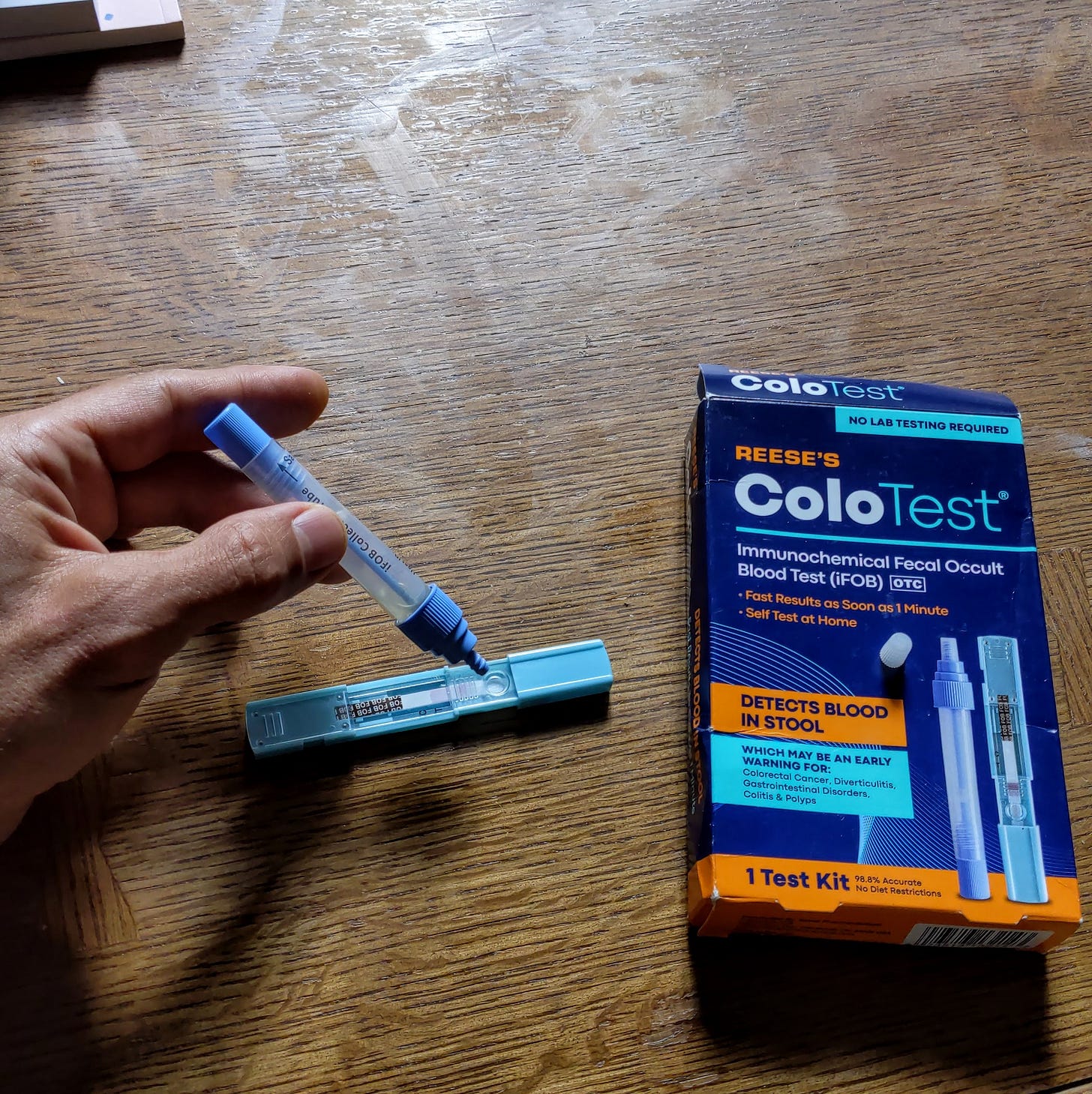
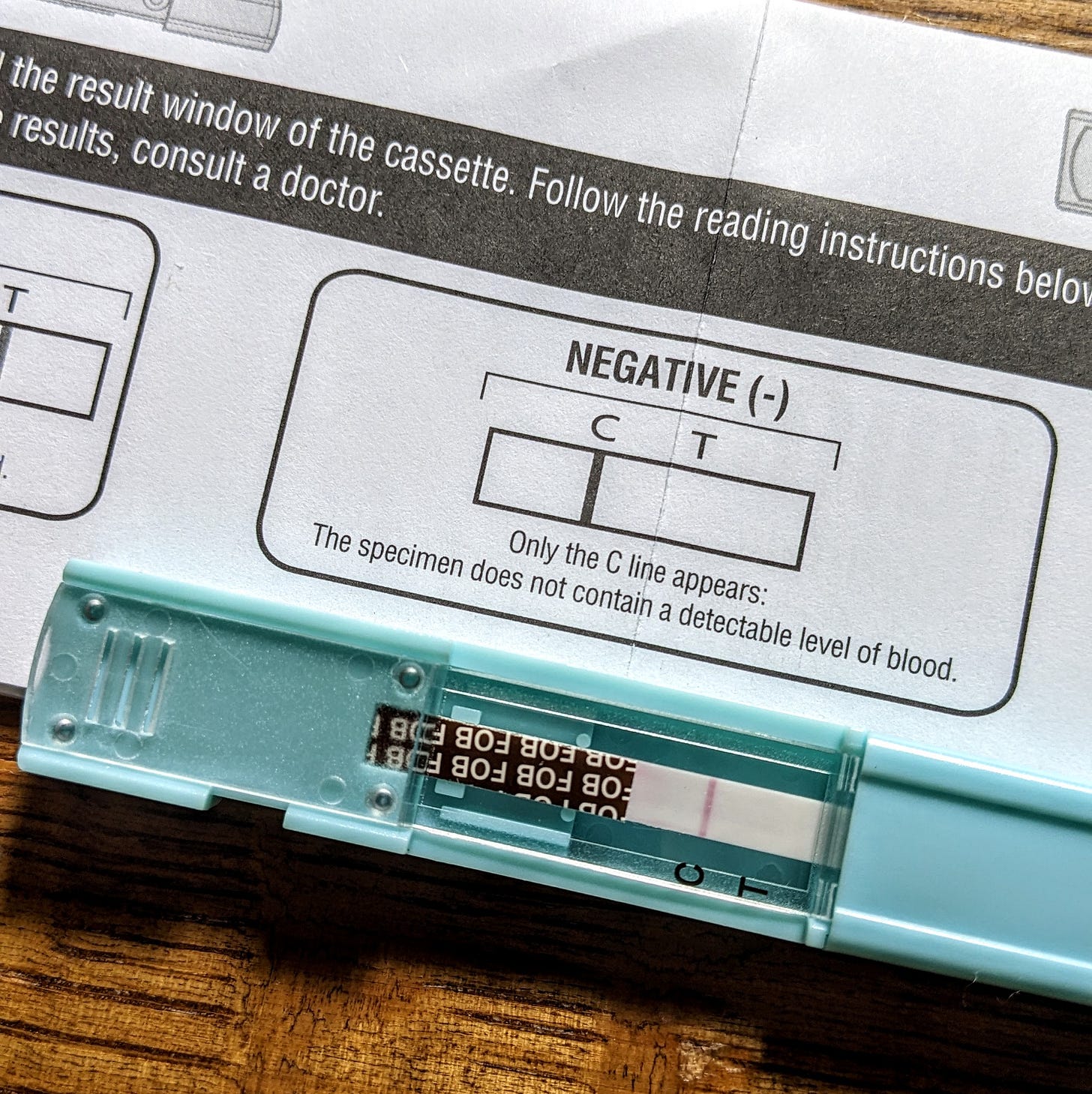
Really appreciate this, Dr. Ashori.
I’d add that day-to-day stool observation—color, texture, frequency—is often overlooked but can offer meaningful clues.
I do wonder if FOBT and even FIT might reflect a relatively late stage in the progression, since bleeding often suggests existing lesions.
That said, they’re still valuable tools—ideally complementing, not replacing, colonoscopy when appropriate.
In some cases, MR enterography can offer a less invasive but still detailed view, depending on the clinical picture.
Thank you for everyone's wonderful feedback on this article. Since this question came up a few times I thought I'd answer it here: no, I don't make any money from this product and don't know the manufacturer other than what's listed on the FDA website and my own experience. As a physician, I have access to many different colon cancer screening options for my patients and because my medical practice is a direct-pay model, I have no financial incentive in any medications I prescribe, labs or imaging studies I order, or any other profit model.